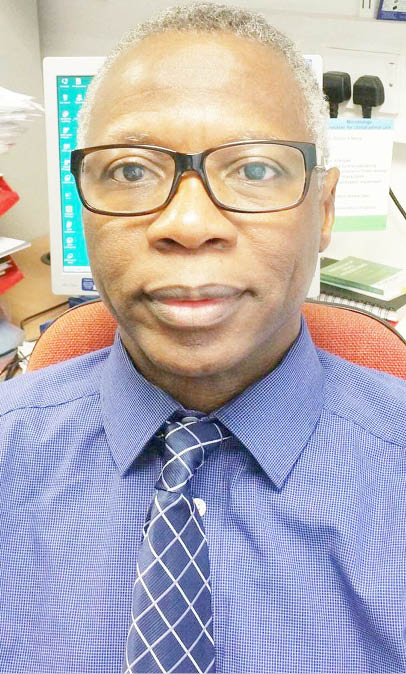Dr Ibrahim Jalo Hassan Gombe is a founding member and current Chairman of Africa Healthcare Development Trust (AHDT), a United Kingdom-registered charity. In this interview, he speaks on lessons Nigeria can learn from the UK health system, AHDT’s health interventions in Nigeria, among others.
What is your assessment of Nigeria’s health system?
The Nigerian healthcare system is very variable both in terms of structure and function.
- PHOTOS: Cows ‘take over’ school in Abuja
- 2023: Zoning presidency to South, wishful thinking – Sen Adamu
For example, in general, the cities tend to have better equipped hospitals and better skilled manpower compared to the towns and villages.
Many of the teaching hospitals are also in reasonable shapes. There is however a dearth of good services in rural areas which are poorly served. There are also some good private hospitals dotted across the cities.
As someone in the diaspora, what lessons do you think Nigeria can learn from the UK in terms of healthcare?
The lesson is to adequately equip the healthcare facilities and remunerate staff properly.
Nigeria is such a great and interesting country that throws peculiar challenges of human, material and logistical dimensions.
During our projects, we no doubt met and worked with colleagues whose dedication is second to none, while at the same time, some are just not interested in engagement at all, especially with charities like AHDT, which unlike many NGOs does not have adequate funding to pay staff.
What is your advice for Nigeria on healthcare?
My view is that there should be a centrally funded tax- based healthcare system like is obtained in the UK. It is the most balanced advantageous system that benefits most citizens.
In this model, care is delivered free based on needs. Although an insurance-based system like that in the United States of America (USA) also has it merits and is increasingly becoming popular.
A major snag of the USA model is that it’s profit-driven and cannot be run without declaring dividend to shareholders.
In either case, proper management is required and is crucial in order to minimise wastage and maximise benefits to the citizens/users.
What inspired you to set up AHDT?
The organisation started as an informal meeting of a few UK-based friends and colleagues from the healthcare profession in January, 2002, to help tackle some of the healthcare needs in Nigeria.
Prior to this meeting, we were working individually on ad hoc basis when we went on holidays to Nigeria during which we helped to run clinics, ward rounds and delivered lectures and trainings in our local hospitals or alma mater.
It soon became obvious that pooling our resources together to form a charity would be a much better way of contributing to the healthcare needs in Nigeria.
How do you operate and what kind of support do you provide?
We started initially with collecting pieces of consumables, equipment, books and journals to ship to Nigeria for tertiary institutions.
We soon realised that this was consuming a lot of our meagre resources with minimal impact on the ground.
We then moved to public health campaigns against major health issues in Nigeria, including HIV and malaria.
In February, 2010, we moved our focus to implementing hospital-based projects. This meant going to visit hospitals with our members for either a one-week (minor) or two-week (major) projects.
During these visits, together with our local partners, we run clinics and surgeries, including general surgery, eye operations and engage in skills transfer sessions.
As of today, our primary focus remains manpower training, skills development and capacity building.
These are our areas of expertise that we hope to consolidate even further in future, especially now with COVID-19, training around infection prevention and control, including hand hygiene practices will need to be escalated.
The trainin of all healthcare workers: doctors, nurses, midwives, lab technicians, managers and supporting staff are equally necessary for a successful healthcare system.
What have been the key interventions?
In summary over the last 20 years, we have treated more than 20,000 children and adult patients free of charge across Northern Nigeria.
These include surgical operations for cataracts; hernias; hydrocele, goiters and Vesico-Vaginal Fistulae (VVF).
They also include chronic conditions such as hypertension, diabetes, asthma, peptic ulcers and a variety of acute infections.
We have also trained thousands of conventional midwives and Traditional Birth Attendants (TBAs) on newborn resuscitation.
TBAs trained by AHDT are also provided with safe birth practice kits which contain resuscitation equipment that they take to practice in the communities.
In addition, we have upgraded some local facilities, including theatres in all the hospitals that we have visited, and have also built or renovated wards in some hospitals. We have set up clinics and sent relief materials, including medical supplies to Internally Displaced Persons (IDP) camps to help victims of attacks by Boko Haram bandits.
We have so far successfully completed health improvement projects in Jigawa, Kano, Gombe, Kaduna, Adamawa and Niger states.
AHDT has also signed MOUs with some teaching hospitals, including Ahmadu Bello University Teaching Hospital (ABUTH), Zaria; Gombe Federal Medical Centre; Aminu Kano Teaching Hospital (AKTH) and IBB University, Lapai, Niger.
We have also facilitated a mutually beneficial exchange of skills between Nigeria and UK-based medical and nursing colleagues.

 Join Daily Trust WhatsApp Community For Quick Access To News and Happenings Around You.
Join Daily Trust WhatsApp Community For Quick Access To News and Happenings Around You.

